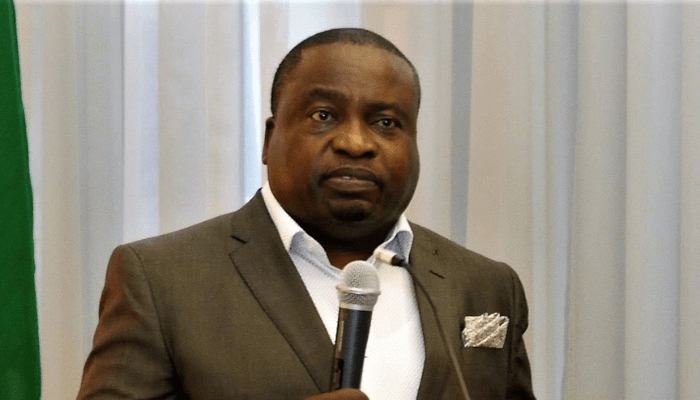Diaspora summit attracted up to $500m grant for small businesses, state projects- Official
Bimbo Roberts Folayan, convenor of the Nigerian Diaspora Direct Investment Summit (NDDIS), has revealed philanthropic funders offered deals ranging from $1 million to $500 million in grants for small businesses and state-led projects at the last diaspora summit in March.
He noted this recently in a video interview, where he highlighted that NDDIS has played a key role in encouraging Nigerians abroad to establish businesses back home, as remittances totalled over $20.9 billion in 2023, (nearly four times) Nigeria’s foreign direct investment.
He however expressed frustration at the slow response from Nigerian states. “Since we started, we’ve mobilised and encouraged many diasporans to set up businesses in Nigeria,” he noted. “They’re taking new technologies, ideas, and business models back home. It’s been very successful, but the government still doesn’t fully understand the importance of this.”
Read also: Diaspora remittances must be matched by political recognition, inclusion – experts
“It took us so much to convince some states to bring forward projects; this is free money,” he said. “We managed to get Bauchi and Katsina States involved, and we’re hoping to mobilise a minimum of $200 million into Nigeria before the end of the year.”
Folayan, also regarded as a repected elder statesman within the UK-based Nigerian community described the diaspora community as ‘a powerful bridge to investors’ ,and urged the government to deepen its collaboration with citizens living overseas.
He strongly believes that the Nigerian diaspora has a critical role in driving economic growth and attracting investment into the country.
On diaspora engagement and foreign investment
Folayan also emphasised that diaspora engagement and foreign investment represents an untapped resource for development.
“The government in Nigeria needs to engage more with the diaspora because of the power that the diaspora holds,” he said. “When you look at the economic situation and what the diaspora has been doing for years setting up initiatives, returning with new ideas and technologies this is where the real investors are.
He added that initiatives like the NDDIS have helped change the government’s mindset towards viewing the diaspora as an extra resourcs for nation-building. “We are like children abroad; you don’t need to do much, you just need to engage and connect us with what you want for Nigeria,” he explained.
Read also: Beyond remittances: Building Nigeria’s brain bridges
On the absence of ambassadors and diplomatic engagement
Folayan criticised the prolonged delay in appointing Nigerian ambassadors and high commissioners, describing it as a major gap in the country’s foreign engagement.
“It’s very confusing even the High Commission doesn’t understand why,” he lamented. “It shows that the government doesn’t fully grasp the importance of foreign engagement. There’s a huge disconnect between our missions, the community, and investors.”
He stressed that without substantive ambassadors in place, ongoing diaspora investment efforts risk losing momentum.
“Unless proper ambassadors are appointed before the end of the year, much of the work people like us are doing will not amount to much,” he warned.
Reflecting on the administration’s economic reforms, Folayan acknowledged that the reforms are long-term in nature, but immediate relief is needed through local governments and stronger diaspora collaboration.
He called for men and women within the diaspora to work directly with the government to support implementation and monitoring, and reaffirmed his commitment to fostering stronger diaspora participation in Nigeria’s development.
“The diaspora is the engine of growth,” he said. “When properly engaged, we can help drive investment, innovation and positive change for our country.”

